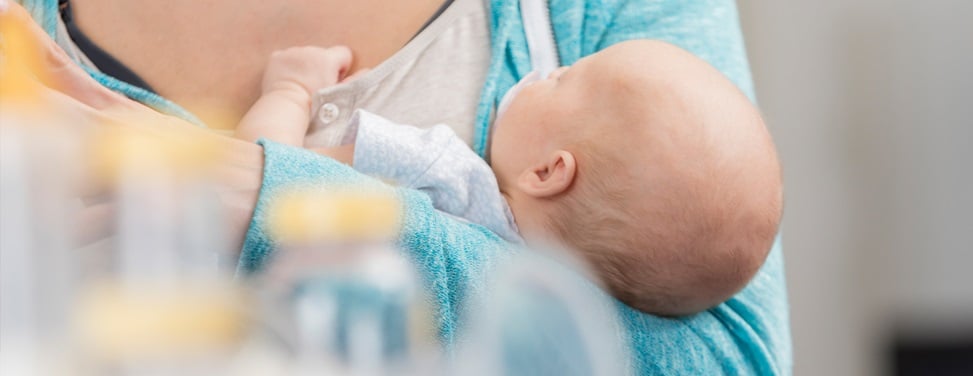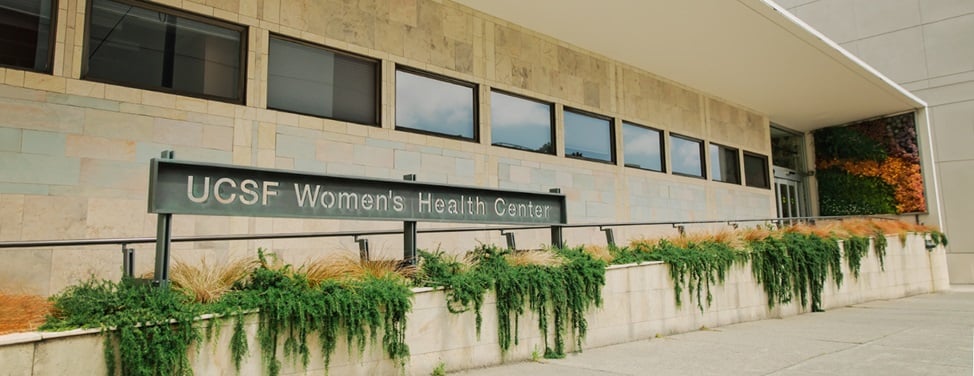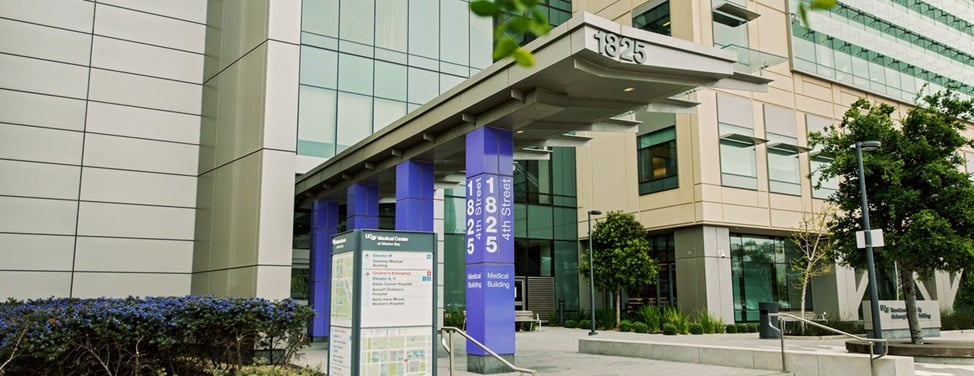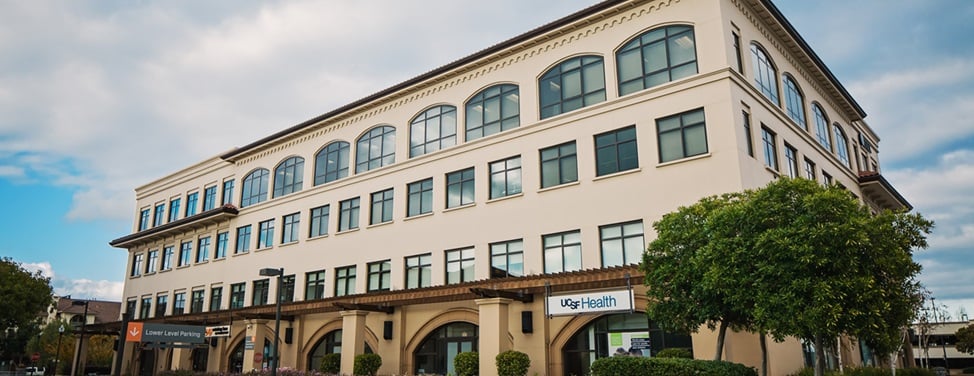
Prenatal Diagnostic Center
The UCSF Prenatal Diagnostic Center provides comprehensive counseling, screening and testing for fetal conditions. The decision to use these services belongs exclusively to each pregnant individual and family. Our role is to provide the information and support patients need to make the choices that are right for them.
Our center is part of the UCSF Women's Health Center – a nationally designated center of excellence – and patients are ensured the highest quality care and service. They benefit from the most advanced technologies and procedures. Our practitioners bring a wealth of expertise and experience, having performed more than 60,000 amniocentesis procedures and 18,000 chorionic villus sampling procedures over the last 35 years.
Whether you're planning a pregnancy or already navigating one, our genetic counselors are available to discuss your options for genetic screening. If you choose some type of screening, your counselor will meet with you afterward to explain the results, offer any appropriate follow-up tests and counsel you on your options.
In addition to providing the most advanced tests available, the Prenatal Diagnostic Center is working to develop less invasive ways to perform in utero screening and diagnosis of genetic disorders. Interested patients may have opportunities to participate in studies evaluating these methods.
Our locations (6)
Our team
-

Emilia Basilio
MD
Obstetrics and Gynecology -
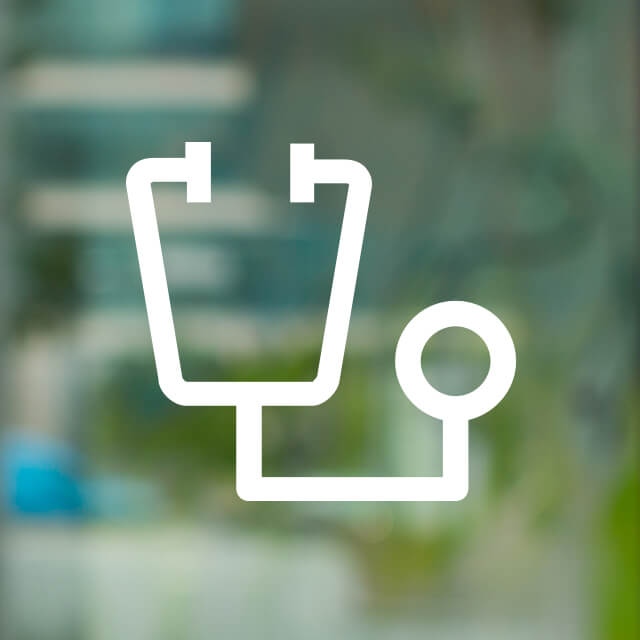
Christine Blauvelt
MD
Maternal and Fetal Medicine -

Arianna Cassidy
MD
Obstetrics, Maternal and Fetal Medicine -

Jacquelyn Chyu
MD
Obstetrics and Gynecology, Maternal and Fetal Medicine -

Katherine Connolly
MD
Maternal and Fetal Medicine -

Stephanie Gaw
MD, PhD
Obstetrics and Gynecology, Maternal and Fetal Medicine -

Janet Moore Goldman
MD
Obstetrics and Gynecology -

Neda Ghaffari
MD
Maternal and Fetal Medicine, Obstetrics and Gynecology -

Juan M. Gonzalez-Velez
MD
Maternal and Fetal Medicine -

Linda Hopkins
MD
Obstetrics and Gynecology, Maternal and Fetal Medicine -

Roxanna A. Irani
MD, PhD
Maternal and Fetal Medicine -

Daisy León-Martínez
MD
Maternal and Fetal Medicine -

Ben Li
MD
Maternal and Fetal Medicine -

David Marinoff
MD
Maternal and Fetal Medicine -

Mary E. Norton
MD
Maternal and Fetal Medicine, Clinical Genetics -

Elizabeth (Libby) Patberg
MD
Obstetrics and Gynecology -

Annalisa Post
MD
Obstetrics -

Anne Regenstein
MD
Maternal and Fetal Medicine -

Charlah Ayers Robinson
MD
Maternal and Fetal Medicine -

Melissa Rosenstein
MD, MA
Obstetrics and Gynecology, Maternal and Fetal Medicine -

Nasim Sobhani
MD
Obstetrics -

Kate Swanson
MD
Obstetrics and Gynecology -

Martha Tesfalul
MD
Maternal and Fetal Medicine -

Mari-Paule Thiet
MD
Maternal and Fetal Medicine -

Jonathan Weiss
MD
Maternal and Fetal Medicine -

Marya Zlatnik
MD
Maternal and Fetal Medicine -

Kanchi N. Barfiwala
MS
Genetic Counselor -

Jane Chinn
MS
Genetic Counselor -

Braeden Ego
MS
Genetic Counselor -

Carly Kenyon
MS
Genetic Counselor -

Cheri Loustalet
MS
Genetic Counselor -

Kati L. Malabed
MS
-

Holly Mueller
MS
Genetic Counselor -

Alicia Orta
MS
Genetic Counselor -

Frannie Roche
MS
Genetic Counselor -

Allyson Scott
MS
-

Julia Silver
MS
Genetic Counselor
-

Arianna Cassidy
MD
Obstetrics, Maternal and Fetal Medicine -

Jacquelyn Chyu
MD
Obstetrics and Gynecology, Maternal and Fetal Medicine -

Katherine Connolly
MD
Maternal and Fetal Medicine -

Stephanie Gaw
MD, PhD
Obstetrics and Gynecology, Maternal and Fetal Medicine -

Neda Ghaffari
MD
Maternal and Fetal Medicine, Obstetrics and Gynecology -

Janet Moore Goldman
MD
Obstetrics and Gynecology -

Juan M. Gonzalez-Velez
MD
Maternal and Fetal Medicine -

Linda Hopkins
MD
Obstetrics and Gynecology, Maternal and Fetal Medicine -

Roxanna A. Irani
MD, PhD
Maternal and Fetal Medicine -

Daisy León-Martínez
MD
Maternal and Fetal Medicine -

Ben Li
MD
Maternal and Fetal Medicine -

David Marinoff
MD
Maternal and Fetal Medicine -

Mary E. Norton
MD
Maternal and Fetal Medicine, Clinical Genetics -

Annalisa Post
MD
Obstetrics -

Anne Regenstein
MD
Maternal and Fetal Medicine -

Charlah Ayers Robinson
MD
Maternal and Fetal Medicine -

Melissa Rosenstein
MD, MA
Obstetrics and Gynecology, Maternal and Fetal Medicine -

Nasim Sobhani
MD
Obstetrics -

Kate Swanson
MD
Obstetrics and Gynecology -

Martha Tesfalul
MD
Maternal and Fetal Medicine -

Mari-Paule Thiet
MD
Maternal and Fetal Medicine -

Jonathan Weiss
MD
Maternal and Fetal Medicine -

Ophelia Yin
MD
Maternal and Fetal Medicine -

Marya Zlatnik
MD
Maternal and Fetal Medicine
-

Kanchi N. Barfiwala
MS
Genetic Counselor -

Jane Chinn
MS
Genetic Counselor -

Braeden Ego
MS
Genetic Counselor -

Carly Kenyon
MS
Genetic Counselor -

Cheri Loustalet
MS
Genetic Counselor -

Kati L. Malabed
MS
-

Holly Mueller
MS
Genetic Counselor -

Alicia Orta
MS
Genetic Counselor -

Frannie Roche
MS
Genetic Counselor -

Allyson Scott
MS
-

Julia Silver
MS
Genetic Counselor
Our Services
Ultrasound:
- Nuchal translucency/first trimester ultrasound
- Early anatomy ultrasound, in partnership with the UCSF Fetal Treatment Center
- Anatomy ultrasound (level 2)
- Growth/follow-up ultrasound exams
Genetic counseling
Screening tests:
Diagnostic tests (following genetic counseling):
For more information about UCSF prenatal services, visit our prenatal care page.
Clinical trials
DECIDE: A Comparative Effectiveness Trial of Metformin Versus Insulin for the Treatment of Gest...
LGA will be defined as a birthweight ≥90th%tile for gestational age based on a US birth certificate reference adjusted for parity and/or fetal sex. Neonatal hypoglycemia will be defined as a blood glucose <35 mg/dL or treatment <2...
Recruiting
Support services
Plan your visit
What to Bring
- Photo I.D.
- Health insurance card
- Insurance authorization, if required
- Doctor's referral, if required
- Recent test results related to your condition
- List of your medications, including dosages, plus any you're allergic to
- List of questions you may have
- Device or paper for taking notes







